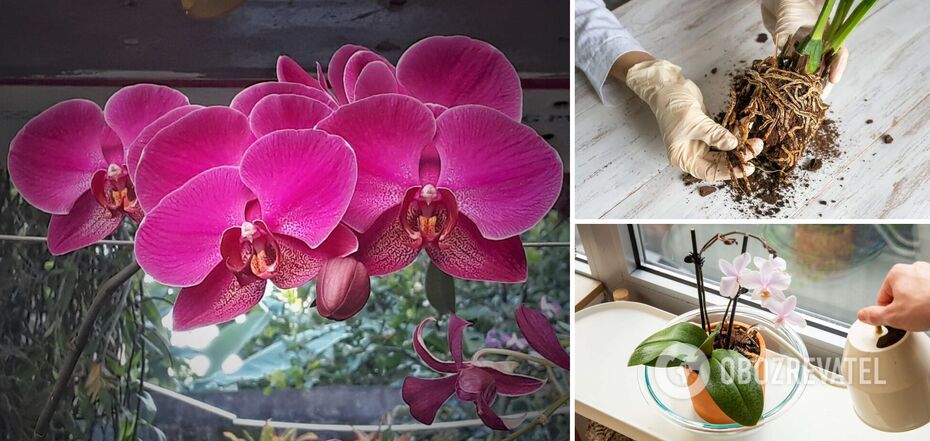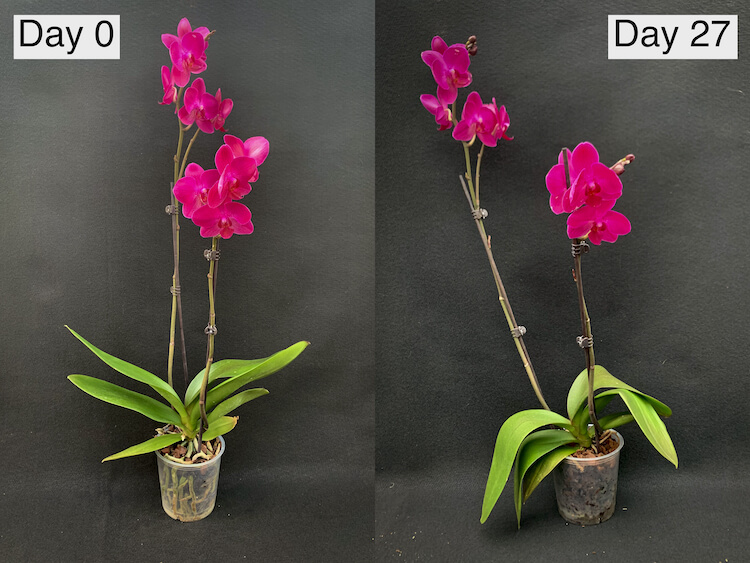Entertainment
Noisy remedy can kill an orchid: what absolutely cannot be used to "save" a flower
Not all advice from the Internet is equally useful. This is especially true for really strange and exotic options. Sometimes it can cause irreparable damage, such as destroying your favourite houseplant. One of these dangerous myths is that of hydrogen peroxide's ability to fight root rot in orchids. People who spread it claim that the product is completely safe and can quickly put the flower back in order.
The authors of the Just Add Ice Orchids blog decided to test this life hack and turned to plant care expert Renate Goossen for help. She is a graduate of the University of North Carolina and knows how to conduct research to test various assumptions. Goossen was unable to find a scientifically sound explanation for the peroxide life hack, so she set up her own experiment. She gave her project a very serious title: "Characterizing the Phytotoxic Effects of Hydrogen Peroxide Root Dips on Phalaenopsis Orchids" and published its results on the university's research server.
How the experiment was conducted
The researcher created a controlled environment that mimics the typical conditions of home orchid cultivation. Goossen's experiment included four variants of hydrogen peroxide concentration (0%, 3%, 6% and 12%), each of which she applied to the plant four times. In total, she used 16 plants of the Phalaenopsis Vivaldi species in the study. The peroxide was applied by dipping the roots.
The experiment lasted for 27 days, during which the researcher made observations, photographs and notes according to the protocol she developed. She then collected all this data and drew conclusions on whether hydrogen peroxide can be considered safe for application to orchid roots, and if so, what concentration would be optimal.
What we learned
After the first immersion, the plants exposed to the peroxide water began to show symptoms of dehydration, loss of mineral nutrients from the reserve root tissues, death of symbiotic algae, discolouration and rotting of the roots, and eventually wilting of the leaves. Concentrations of 6% and 12% proved to be destructive for plant roots, and 3% caused their partial death.
So, according to the study, it turned out that hydrogen peroxide not only does not help cure an orchid from root rot. It can harm it and cause the plant to wilt.
What to do if the roots of an orchid begin to rot
You can tell if the roots of an orchid are rotting by their appearance - they become brown, slippery and fall apart in your hands. This is always a bad symptom. But in the vast majority of cases, it is treated by simply changing the conditions for the plant. Let the roots dry, reduce the amount of water or the duration of immersion, and make sure that the substrate dries out between waterings. It is better to let the roots stay without water a little longer than necessary - the orchid tolerates such conditions more easily. You can also transplant the plant into a new substrate and put more drainage in the pot.
The most damaged roots should be cut off. It is important to remember that the rotting of the roots of an orchid cannot be reversed - the affected roots, unfortunately, will not recover. However, you can create conditions under which the plant will release new and healthy ones.
There are also two diseases that lead to rotting of the orchid - late blight and pythium. Both are caused by the defeat of the corresponding types of fungi. But they can only be identified in a laboratory. Therefore, first try to quarantine the flower, separating it from other plants, and adjust its care. Most likely, this will be enough.
Earlier, OBOZREVATEL talked about the method of watering an orchid with ice cubes, which will help beginners to understand the nuances of plant care.
Subscribe to OBOZREVATEL's Telegram and Viber channels to keep up with the latest news.




























